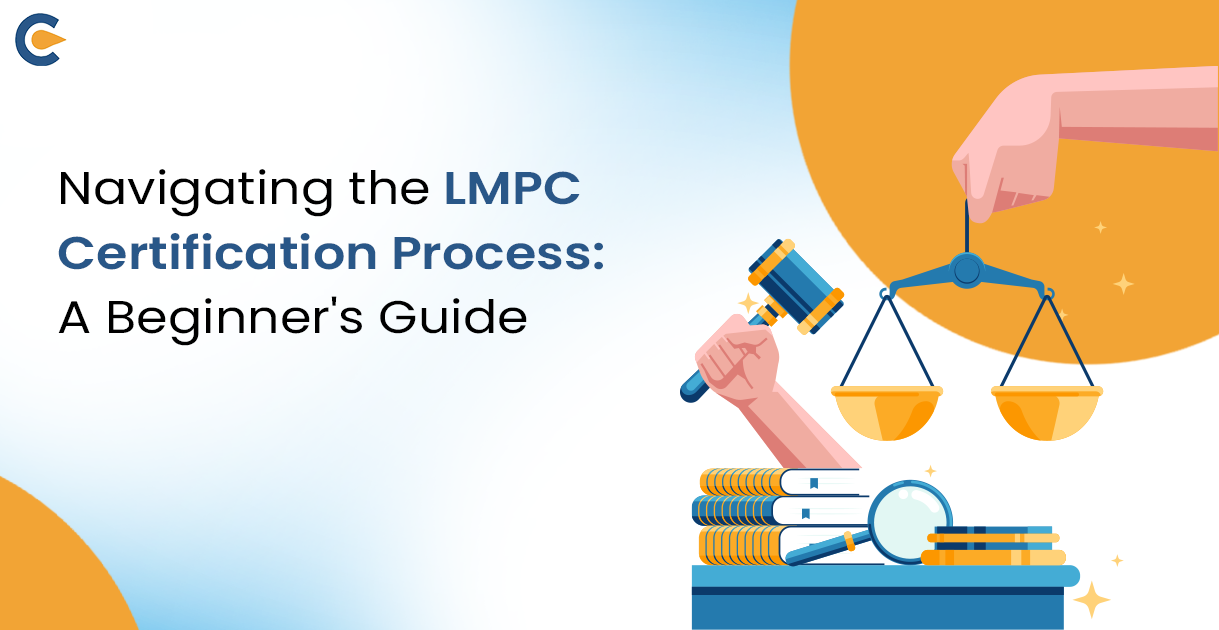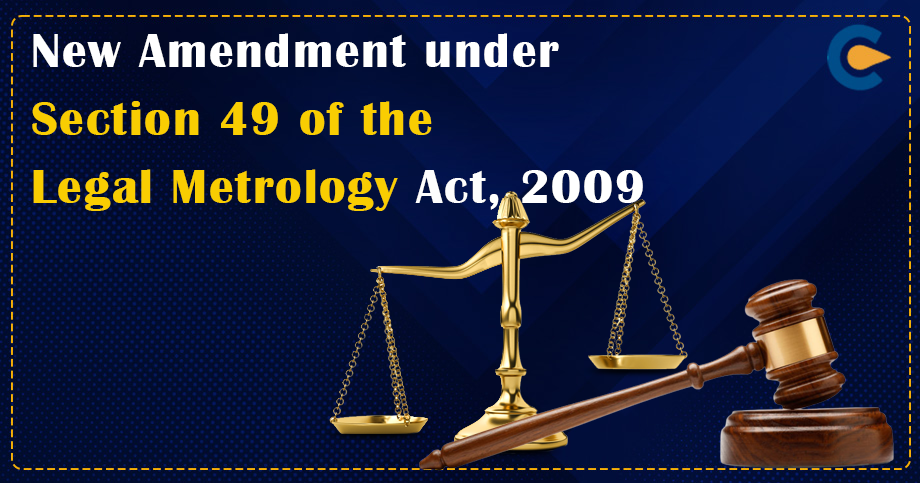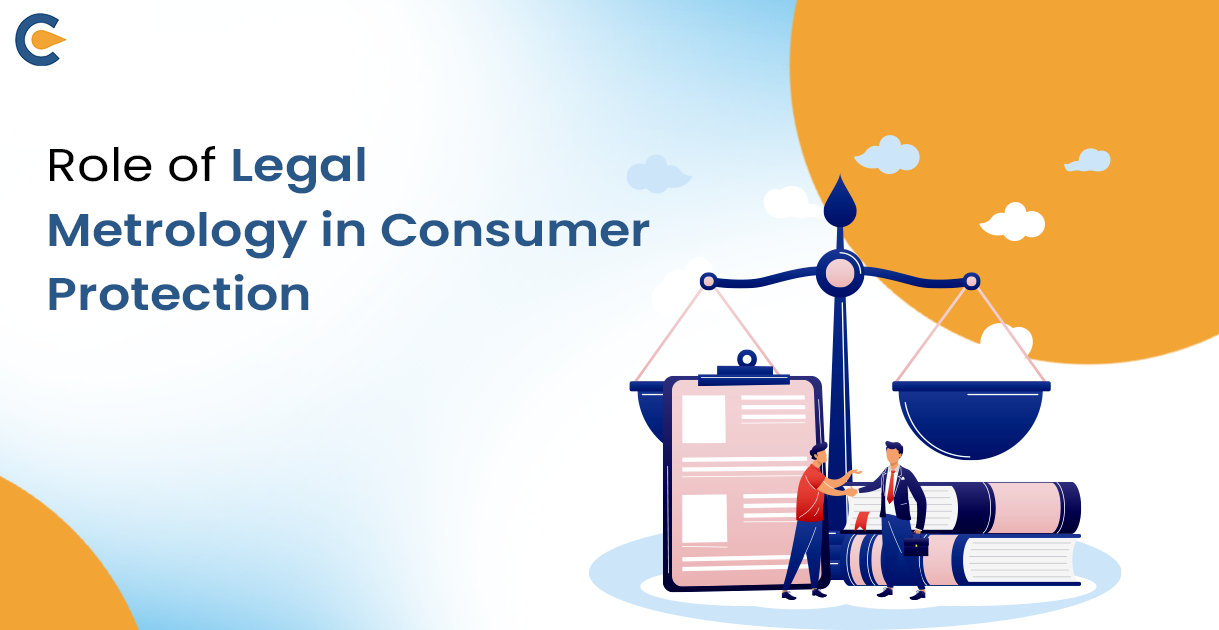Businesses that manufacture, market, and distribute pre-packaged import commodities are required to register as Legal Meteorology Packaged Commodities (LMPC) providers. An LMPC, also known as an importer license, guarantees the import of pre-packaged goods. If the importers are discovered to be in violation of the law, they risk facing severe fines and having their shipments halted by customs. Legal Metrology certification is one of LMPC’s main duties, along with overseeing and controlling the manufacturing, importation, and marketing of weighing and measuring instruments and devices.
What is LMPC?
Legal metrology is a field that deals with the units, procedures, weights, and measures associated with all mandatory statutes and regulatory requirements. A crucial component of global trade that addresses the legal aspects of measurements and weighing devices is known as legal metrology. It helps ensure honest and open trading practices by setting clear norms.
Understanding the Legal Metrology rules of the country of import and determining the precise requirements that apply to the goods is crucial before beginning the application procedure. Any company engaged in the production, marketing, distribution, importation, and packaging of pre-packaged goods must have an LMPC certificate, which stands for Legal Metrology Packaged goods.
In India, the import, distribution, and sale of pre-packaged goods are governed by the Legal Metrology Act 2009. Pre-packaged products are those that are prepared in advance and packaged without a buyer. By registering a product under this Act, you can reduce unfair commercial practices related to it and create a strong image of customer awareness.
LMPC Certification: Meaning and Types
Importing pre-packaged items requires the LMPC certificate, which is the full name of the Legal Metrology Packaged Commodities certificate. All packers and importers of pre-packaged goods are required by the Legal Metrology Act, 2009, to register under the Legal Metrology Packaged Commodities Rules, 2011, rule 27. Within ninety days of starting import operations, applications must be submitted for this registration. Getting an LMPC accreditation entails handling products with precise dimensions in a genuine and accurate manner.
The 2011 Legal Metrology Pre-Packed Commodity Rules include two types of LMPC registrations.
- LMPC Importer Registration under Rule 27: If you import pre-packaged commodities and sell them in India without doing any further packaging or labelling, you must register as an LMPC importer.
- LMPC Packer & Manufacturer Registration under Rule 27: You must get this registration if you are producing and packaging your products or if you are purchasing products manufactured by a third party and packing them under your own name.
Advantages of LMPC Certification
Below are some of the benefits of obtaining an LMPC certification in India:
Customer Confidence
Customers are more likely to believe that your products are precisely measured and packaged when they see the LMPC Certificate, which will improve the reputation of your company. Gain the confidence and trust of customers with your goods and services.
Steer Clear of Penalties
Avoid fines and penalties issued by the government for breaking legal metrology requirements. Acquiring the LMPC Certificate assists you in avoiding expensive legal ramifications that may result from failure to comply with packing, weight, and measurement regulations.
Facilitates and Encourages Importing
A document that attests to your completion of the legal metrology is the LMPC certificate. Its goal is to improve India’s export, finance, and trade sectors. It facilitates the import of commodities into India.
Facilitation of Trade
The Legal Metrology Act must regulate all forms of unjust and unlawful behaviour. Therefore, the mandatory LMPC registration by the importers or manufacturers will guarantee that all measuring instruments are kept in working order and undamaged, performing their original function while adhering to international standards.
Reduces Time and Cost of Importing
A license for an importer, also known as an LMPC license, includes all the details on the weights and characteristics of packed products. When clearing customs for packed goods saves a ton of time. The import LMPC certificate expedites the customs procedure, prevents needless delays, and spares against fines.
Assurance of Product Quality
LMPC certification shows that you are dedicated to producing top-notch goods. Customers are reassured that they are receiving dependable and precisely measured items by the LMPC Certificate, which acts as proof that your packing and measurements adhere to accepted standards.
An Edge Over Competitors
Present the LMPC Certificate in a visible manner to gain a competitive advantage in the market. With this Certificate, you may set your brand apart from uncertified rivals and perhaps draw in additional business by demonstrating to consumers that your items comply with legal criteria.
What are the Essential Documents Required for the LMPC Certification Process?
The following are the essential documents required for the LMPC certification process:
- Goods and Services Tax Certificate
- Import and Export Code certificate
- MSME Certificate
- Pan Card of the company and the owners
- The Aadhar Card of the applicant
- Rent Agreement if the office is on a rented premise
- Manufacture Name, Address, Email ID & Phone no.
Process of LMPC Certification
Step-1: Submission of the Application for LMPC Certification
Sending your application to the appropriate district office of Legal Metrology in your State is the initial step toward LMPC (Legal Metrology Packaged Commodity) Registration. Fill the application with all the information it needs to be completed. Verify that the information is accurate to prevent delays or rejections.
Step 2: Submission of the Required Essential Documents
Enclosed are copies of all required documentation for registration. A comprehensive list of these documents has already been covered. For a hassle-free procedure, ensure that they are filed in their accurate and updated formats. At Corpbiz, we provide our clients with comprehensive support with documents. For further advice, get in touch with our professionals.
Step-3: LMPC Registration Fees Payment
As directed by the appropriate authorities, proceed with paying the required LMPC registration costs. It is mandatory for packers to pay an application fee of Rs 500 for the fiscal year 2023-24. It’s crucial that you ensure you have the precise amount on hand.
Step-4: Reviewing of the Application
Your LMPC certification application will undergo a thorough assessment procedure when it is submitted, which will be supervised by the Director of Metrology. Keep an eye out for email alerts that will let you know if your application was approved or denied. If incomplete applications are found to include errors or omissions, they will be quickly returned to you for correction within a period of seven days.
Step-5: Premise Inspection
An inspector will be assigned to perform an on-site examination of your premises if your application passes the first evaluation. The goal of this inspection is to make sure that your packing and weighing procedures meet regulatory requirements by verifying compliance with the Legal Metrology Act and Rules.
Step-6: Submission of Inspection Report
The designated inspector will provide a thorough report outlining everything they discovered while doing the examination. Recommendations for enhancements aimed at achieving or preserving compliance with legal metrology standards can also be included in this report.
Step-7: Grant of LMPC Certificate
Based on the inspection report and your demonstrated compliance with the Legal Metrology Act and Rules, your application will advance toward the issuance of the LMPC certificate. Once approved, you will receive your LMPC certificate, granting you the legal authority to package and sell your commodities by the established standards and regulations. The Certificate will be valid for a period of five years. LMPC Renewal is required after every five years. For this, the applicant must file the renewal application to the Department of Legal Metrology.
LMPC Certification Compliances
Information on Package
Every producer, seller, importer, and distributor is required by the Department of Consumer Affairs to abide by certain requirements, which state that each pre-packaged item must take into account the following information in the exterior packaging of the pre-packed commodities.
- The product’s generic name;
- If perishable, an expiration date should be included;
- The maximum retail price (including GST);
- The date of manufacturing;
- The date of packaging or import;
- The details of consumer use; the net contents, including weight, volume, and length;
- The consumer care information and toll-free numbers;
Declarations to be Made in the LMPC Certificate
The following disclosures must be made by the importers when they register for the Legal metrology certificate. Any importer is not qualified to apply for an LMPC license if he does not make the necessary disclosures.
- In accordance with LMPC Rule 5, the package must be prepared in the specified amounts.
- Need to specify if the package is a multi-piece, group, or combination package.
- Need to specify if the product is intended for retail or wholesale use.
- Whether perishable goods, such as food, are included in the box.
- Need to disclose whether packaged items will be shipped to other nations.
- If the packed product will only be used as a raw material for a certain industry
- If there is a fast food item in the package, the disclosure is required.
- In the event that the delivery includes a farm product weighing more than 50 kg
- If there are any scheduled or non-scheduled drug formulations in the package
- Who owns or rents the space or store
- It must be stated that the company has not faced legal action for breaking the Weights and Measures Act in the last three years.
- It must be stated that the Weights and Measures agency has inspected and validated the store or premises.
- Any violations have been disclosed.
Exemptions to the LMPC Certification
All pre-packaged commodities must be imported with an LMPC certificate, with the exception of the following:
- Products comprising formulas covered by the Drugs (Price Control) Order, 1995;
- Agricultural goods packaged in quantities greater than 50 kg;
- Packages containing fast food items packaged by a restaurant or hotel;
- Commodities having a net weight or measure of ten grams or 10 millilitres or less
Moreover, the following items are exempt from Chapter 2 of the Legal Metrology Act’s restrictions for packages meant for retail sale:
- Packages containing commodities weighing greater than 25 kg or 25 litres, with the exception of cement and fertilizers supplied in bags up to 50 kg;
- Packaged goods are intended for institutional or industrial users, who purchase the products straight from the producer for use in their respective industries (service institutions such as airlines, trains, hotels, and hospitals).
Non-Compliance of LMPC Rules
- Under Section 19 of the Legal Metrology Act of 2009, importers are only permitted to import any weight or measure with an importer certificate. This legislation is being enforced more strictly by customs officials, and company owners must get an importer certificate prior to importing any weight or measure.
- Failure to file yearly returns by manufacturers and importers may result in a ₹5,000 fine or one year in prison.
- If the product’s label indicates an unconfirmed weight, the importer will likewise face penalties.
- Product producers, importers, sellers, distributors, and importers who sell goods without an LMPC declaration on the package risk a fine of ₹2,000 to 10,000, a year in imprisonment, or both.
- Violating the set standards for measures and weights can result in a punishment of up to $10,000 or a year in jail for importers, packers, producers, and dealers.
- A producer, importer, or packer who breaches section 11 of the LMPC Act faces a year in jail or a fine of up to ₹10,000.
- Importers, packers, and manufacturers risk fines of up to $10,000 or a year in jail if they provide amounts below what the final customer paid for.
Conclusion
Enforcing the Legal Metrology for Packaged Goods (LMPC) registration procedure is more than just a formality; it’s a commitment to maintain the greatest levels of excellence, openness, and equity in the marketplace. Businesses that strictly follow the LMPC method not only guarantee that legal metrology rules are followed but also improve customer welfare and the industry’s general integrity. The LMPC certificate serves as a guarantee to customers that the packaged goods they buy adhere to strict regulatory requirements.
Frequently Asked Questions
Applying for an LMPC certificate can be done online via the state-specific webpage. An importer, manufacturer, or packer must pay a small charge to finish the LMPC process. The registration authority examines all of the supporting documentation and your application when it is submitted.
Any company engaged in the production, marketing, distribution, importation, and packaging of pre-packaged goods must have an LMPC certificate, which stands for Legal Metrology Packaged goods. Another name for it is the importer’s license.
All pre-packaged commodities must be imported with an LMPC certificate, with the exception of goods having a net weight or measurement of little more than ten gms or 10 millilitres. Produce from farms packaged in quantities of more than fifty kg.
According to rule 27 of the Department of Consumer Affairs Legal Metrology Packaged Commodity guidelines, anyone importing pre-packaged products or commodities into India must get an LMPC Registration Certificate beforehand.
Any package that includes fast food items packaged in a hotel or restaurant or anything comparable. It includes both scheduled and non-scheduled formulations that fall under Section 3 of the Essential Commodities Act of 1955 and the Drugs (Price Control) Order of 1995.
An LMPC certificate is good for one to five years.
The legal metrology packaged commodities, also known as an LMPC certificate, are necessary for businesses that manufacture, import, package, distribute, or create items that are already packed.
The Legal Metrology Packaged Commodities Act, or LMPC for short, is the legislation that oversees the certification procedure. LMPC certification, sometimes referred to as an import license, must be requested within ninety days of the beginning of import.
Companies that import pre-packaged products into India are required to register their name and address with the Central Government or the Controller of Legal Metrology from the relevant State in order to get an LMPC import license certification.
The LMPC Rules provide that within ninety days of starting pre-packaging activities, makers, packers, and importers involved in the sale, delivery, and distribution of pre-packaged commodities must acquire a Packaged Commodity Registration.
Read Our Article: Key Components of LMPC License Application and Documentation











